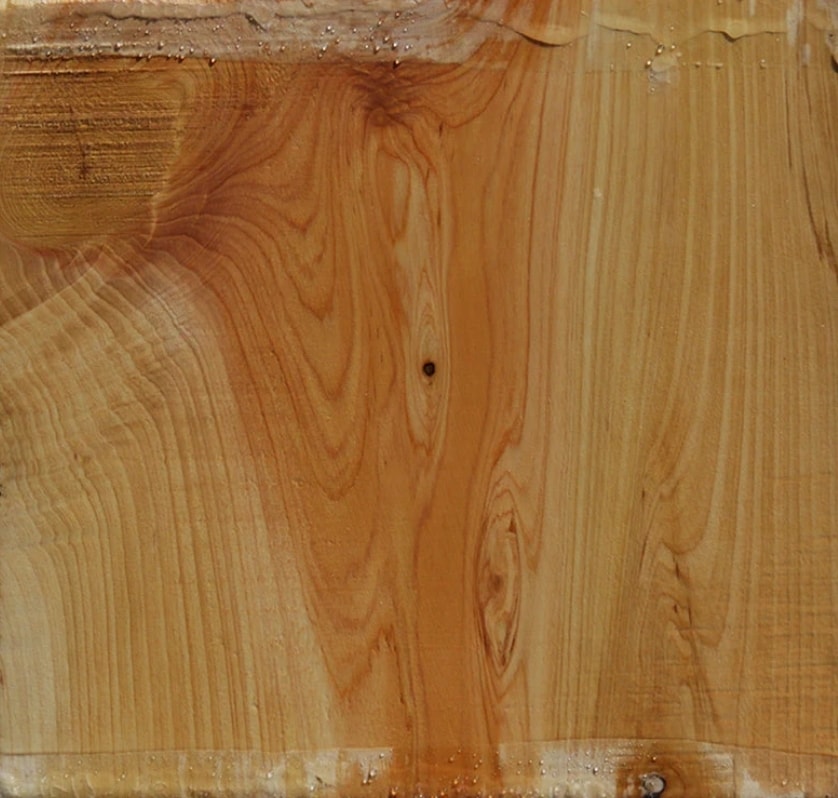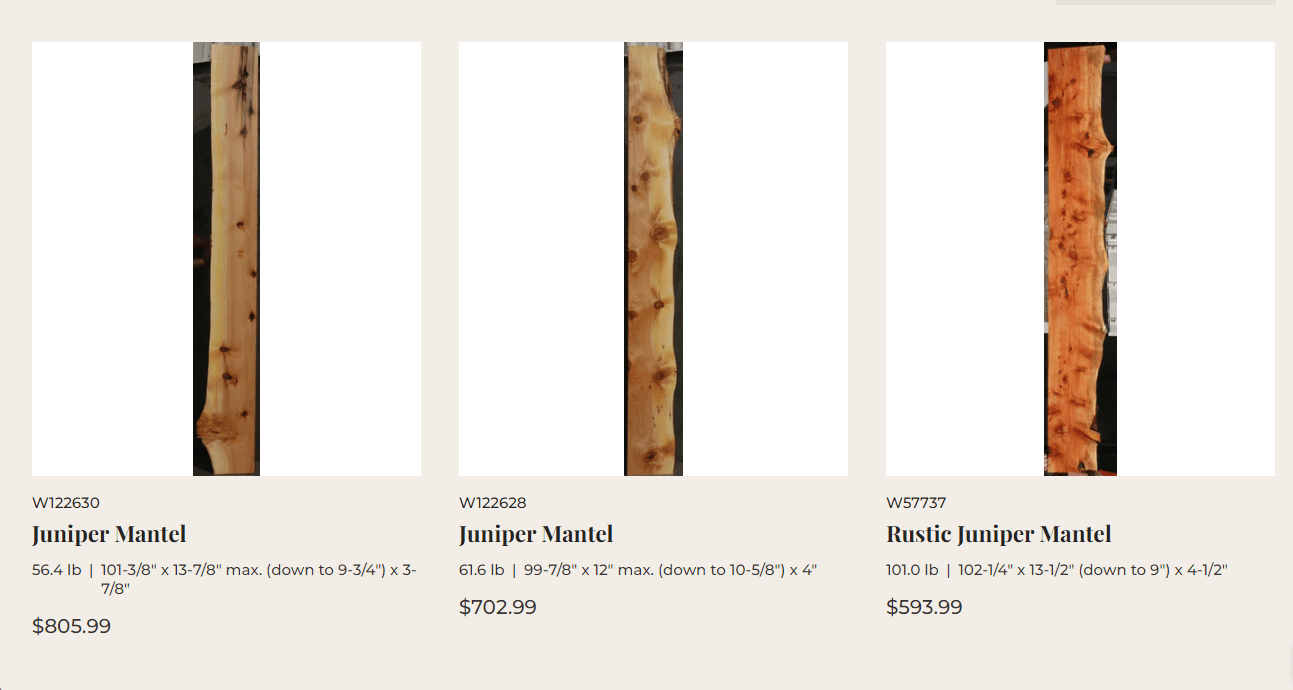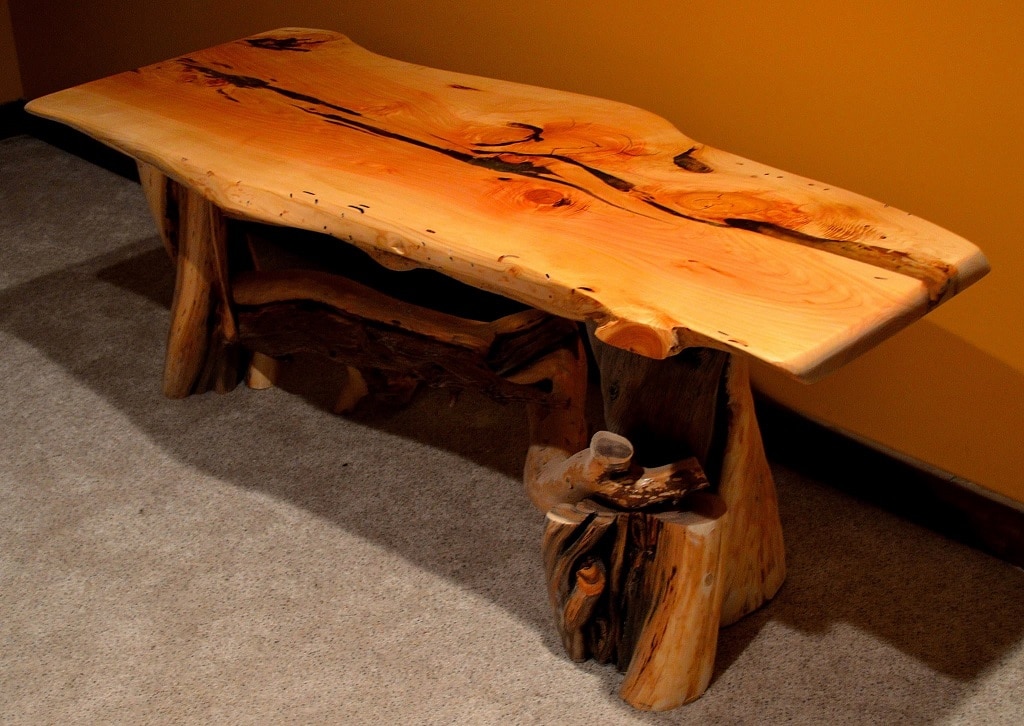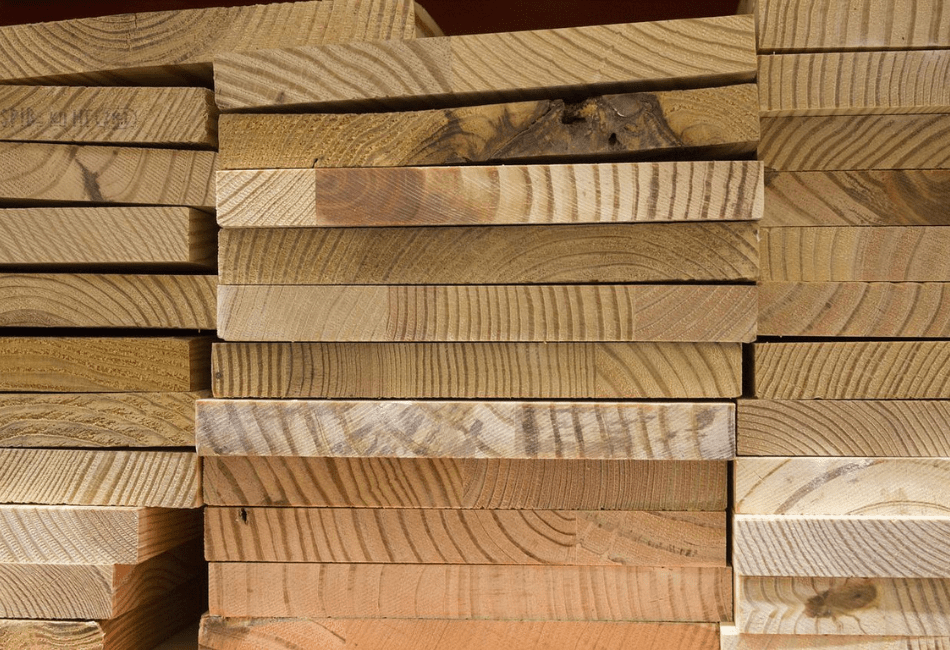- Best STIHL Brush Cutter Replacement Blade - December 8, 2023
- Box Elder Wood Uses - September 30, 2022
- Hackberry Wood Uses - September 25, 2022
Some woods lend themselves to individualistic expression, and Juniper will never make it to the Ikea Store. I love it. Just when you think you have got it down, it becomes a Cedar. Juniperus communis is the common Juniper, and Juniperus virginiana is the Eastern Red Cedar. As some sort of compensation, the Eastern Red Cedar is sometimes called Red Juniper.
Then comes the tour bus of another twelve species of Juniper, ten of which call North America their home.
My forestry professor was right when he insisted that we use the Latin names to avoid confusion, but that will not help us too much here, so let’s agree the Eastern Red Cedar is a Juniper. Still, we will call it a Cedar to fall in with the non-Latin speakers.
From the outset, I must tell you that I love handmade furniture, where logs have been converted for a specific purpose and lovingly put together to showcase the true beauty of wood. Juniper is that type of wood.
It’s knots, checks, imperfections, wild colors, and graphic grain. So, what can you do with this eccentric timber? Let’s look at some of the qualities and Juniper wood uses to guide us into bringing out the magic of this wood.
Key Features of Juniper Wood
Rot Resistant

Juniper produces chemicals as it grows to prevent the wood from rotting. So, it is ideal for outside furniture. It is one of the harder softwoods and, together with the ability to resist rotting, makes it an ideal timber for fence posts and fencing.
Early pioneers discovered these properties of Red Cedar over five hundred years ago and used the timber extensively for fence rails and cladding.
Insect Resistant
Juniper trees have the fantastic ability to produce formaldehyde while growing. This acts as a natural insecticide preventing any insect infestation in the wood.
Red Cedar is wonderfully aromatic, and it is this aroma that repels insects and makes the timber useful in closets and cupboards to protect clothing.
Juniper Wood Is Naturally Twisted
This feature would be undesirable to some people compared to the straight grains of more conventional timbers. Here we need to accept the eccentricity of the species because it is central to its beauty.
Twisted juniper furniture is highly sought after as the pieces are unique and have a rustic charm about them.
Grain Patterns
The grain of Juniper is a Pandoras Box filled with surprises and delights. The tight and intricate grain coupled with the radiant reddish hue are invitations to stimulate your imaginative juices.
Tying Juniper in Knots
If you want to get adventurous with Juniper, you can soak thin strips of around one-sixteenth of an inch in very hot water for an hour or two, and then the wood becomes supple enough to tie it in knots which will become rigid when the wood dries.

Buying Criteria
Juniper and Red Cedar share common characteristics requiring attention when purchasing timber for furniture projects.
For conventional furniture where boards are needed, you would be well advised to check each board for knots and cracks before purchasing. Juniper slabs are sought after for rustic mantles, live edge tables, and bar tops.
The wood is a good choice for turning projects as it turns and finishes easily. It’s an excellent wood for beginners to hone their turning skills as the wood is relatively soft and still provides a good finish.
Juniper is sold in different styles. Boards of various thicknesses and widths are available for conventional woodworking projects. Peeled logs and squared timber for posts and landscape poles are also available.
If you are planning a project that involves using logs for legs of furniture pieces like tables or chairs, consider looking in yards that sell Juniper firewood. I’ve often picked up a couple of ‘just the right shape and size’ pieces from yards selling Juniper firewood.
Where to Buy Juniper and Red Juniper

If there are no local lumber yards that have stocks of juniper, here are some suggested online lumber yards that carry juniper.
Cockwoods offer Juniper boards and live edge boards in various sizes. They also carry stocks of blanks for turning.
Joseph’s Juniper supplies pillars and beams as well as decking timber and butcher blocks. They also stock juniper firewood.
Dunn Lumber carries stocks of Juniper lumber suitable for garden projects like flower boxes, fence posts, and rails.
Juniper’s Labs specialize in supplying live edge slabs of juniper suitable for bar tops and tables.
Alternatives to Juniper
The closest alternative to Juniper is Cedar, and now we are talking about true Cedar, not the Red Cedar, which, as you know now, is a member of the Juniper family.
Comparative Characteristics
| Juniper | Western Cedar | |
| Color | White to deep reddish brown | Pink to purple turning grey with age |
| Grain | Swirling with many knots | Generally straight grain |
| Workability | Works and finishes well | Works well with good nail and screw holding |
| Density | 35lb/ft3 | 23lb/ft3 |
Ponderosa Pine is sometimes used as an alternative to Juniper. Ponderosa Pine is substantially softer than Juniper (35%) but is stiffer than Juniper.
Juniper has the advantage in construction areas as it shrinks and swells a lot less than Ponderosa Pine.
Then there is the Pressure Treated lumber. Here I’m going to go quite Green and favor Juniper for a few reasons.
- Using junipers is a great way to restore the ecological balance by removing the trees where they have negatively impacted the environment.
- Pressure treatment uses chemicals, and although there is a strong case made for the chemicals to be safe, I’d rather not use them. Eventually, the chemicals will leech out of the wood and into the surrounding soil.
- Pressure-treated timber is unattractive, whereas Juniper has got great character and beauty.

Pros and Cons of Using Juniper
In some states, like Oregon, Juniper is considered an invasive species with a detrimental effect on the sagebrush ecosystems. So, by using Juniper, you are playing a positive role in restoring the environment. There are very few timbers that have that result.
Juniper and Red Cedar are both great timbers to use for rustic furniture. If you favor a unique piece of furniture above the more conventional straight grain pieces, then Juniper should be top of your list of options.
Juniper’s natural oils and chemicals have a duel positive role. Firstly, they protect the wood from rot and insect infestation, and secondly, they create a wonderful aroma.
Juniper live edge boards are extremely attractive with their almost chaotic swirling grain patterns. So, if you want a truly unique piece of furniture filled with rustic charm and a great aroma, look at Juniper.
As a softwood, Juniper is relatively hard and dense. If this sounds a little odd, remember that hard and soft woods are distinguished by their seed structure rather than their physical properties. For example, Balsa wood, renowned for model building, is a hardwood. The hardness of Juniper lumber makes it durable.
As firewood, Juniper is almost at the top of the list of softwoods regarding heat produced. Have a look at the following BTUs (sourced from FirewoodResource.com) for some common Softwoods:
- Western Juniper BTU 26,4
- Douglas Fir BTU 26.5
- Western Larch BTU 28,7
To place these values in perspective, the BTU for Oregon White Oak, one of the most favored firewoods, is 28.

On the negative side, Juniper falls short in unblemished boards. Knots, checks, and cracks are what Juniper is all about. To some, this detracts from the grain’s beauty, yet to others, it’s part of the allure of the timber. You need to choose because finding an unblemished board of Juniper is going to be very difficult.
The size of boards is restrictive because of the size of the trees and laminating Juniper is pretty difficult. The uniqueness of the grain structure makes matching grain a challenge.
Juniper is great firewood to help start a fire as it burns easily, but sadly it also burns fast. As a result, you will go through a sizable pile of logs to keep your fire going.
Another negative is that Juniper tends to spit and pop as it burns, making it quite dangerous when used in an open fireplace. It does have a great aroma, though.
FAQs
Question: Is it necessary to treat Juniper fence posts before placing them in the ground?
Answer: The natural chemicals and oils in juniper can protect the fence posts from rot and insect infestation. Consequently, there is no need to apply any protective coating to the juniper fence post before placing the post in the ground.
Question: Is Juniper wood any good for carving and turning?
Answer: Despite being a softwood species, Juniper wood is dense and hard and finishes well. This makes it an ideal wood for carving and turning. The wood is fairly cheap, making it ideal for beginners to take their first steps at the lathe or with carving tools.
Juniper takes a good smooth finish and has the added property of a great aroma. It does, however, mean that the aroma depends on the wood not being sealed.
Question: Are Juniper wood chips of any use?
Answer: Well-seasoned Juniper wood chips are great for smoking meat cuts that have a high-fat content. Bacon, pork belly, and pork ribs are ideal cuts to smoke with Juniper. Salmon is also a good candidate for a little juniper smoke.
Vegetables like sweet potatoes and bell peppers produce a wonderful flavor when smoked with Juniper chips.
Juniper Wood Uses: Final Thoughts
The idea of using a resource that plays a positive role in improving the environment is a very unique and precious property of Juniper. We hear a constant warning of the destruction of Tropical Forest and the resultant demise of animal and bird species. Here is the opportunity to utilize a natural resource with a positive environmental result.
Juniper timber possesses great beauty, is naturally resilient to insect infestation, and can resist rotting when placed in the ground. All this and a great aroma.
If you haven’t been persuaded quite yet. Consider how many other wood species can offer up their seeds to provide the tantalizing taste of a gin and tonic at the end of a warm summer’s day.
While I can accept that rustic-type furniture does have a restricted appeal to those who rate the unique qualities of bespoke furniture made with love and skill, Juniper must be an attractive option that deserves a closer inspection.

